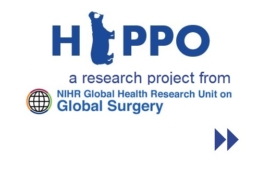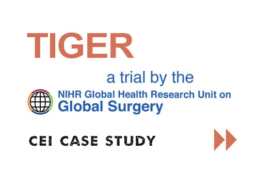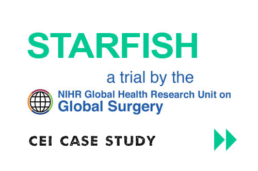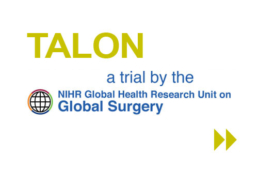The PANDA Study
Improving surgical outcomes through collaborative research


PANDA Overview
PANDA seeks to use qualitative methods to understand what matters to patients in their receipt of surgical care, to prioritise these themes, and explore differences across countries and contexts. Design and delivery of PANDA will be informed by patient and community representatives, with the explicit aim of growing networks for local community involvement in LMICs. Use of qualitative methodology to explore patients experiences of surgical treatment in depth in this study will have several advantages.
Firstly, it will allow deep conceptual understanding of patient’s priorities during their surgical care journeys. Whilst each patient will have their own unique care story, there are likely to be commonalities to patient experience which could underpin patient-centred design for large, multi-country research studies. Secondly, working with patients and community representatives to co-produce and prioritise themes will help improve capacity and leadership for CEI in low-resource settings. Thirdly, through talking to patients about research topics in depth we will improve ‘research literacy’ amongst local populations, and help to identify new patient partners for research involvement in global surgery.
Through co-production of the PANDA study between patients, community members and research team members in LMICs, the key principles of sharing power, building relationships, diverse perspectives, respect and reciprocity for successful CEI will be upheld.
Research exploring patients experiences of surgical care has predominantly focussed on the preoperative setting (i.e., access to care). Qualitative studies of the perioperative care pathway have focussed on providers resilience to resource shortfalls, system level factors impacting on care delivery, and preoperative optimisation checklists. Few studies have focussed on patient priorities for their surgical care, and none in LMICs. In a study with a similar methodology in Sweden (high income) four areas were highlighted including accessibility, reliability, caring attitudes and empowerment.
For patients undergoing head and neck cancer surgery in an Australian hospital (high-income), psychological support for ‘shocks and aftershocks’ was prioritised as a key research area. There is an urgent need to understand patients experiences and priorities for surgical care in LMICs to inform future research planning and design.
You can view further information on the study via the recently created PowerPoint presentation.
0
CONTINENTS
0
COUNTRIES
0
HOSPITALS
0
PATIENTS RECRUITED
PANDA Aims
- To explore and describe patients experience of perioperative care pathways in LMICs
- To identify and prioritise concepts and themes for research in global surgery with patients in LMICs
- To explore the feasibility of flexible, collaborative co-production of research between LMIC researchers, patients and UK researchers in global surgery.
- To build capacity for CEI through identifying, training and involving patients and community members in the PANDA study.
Key Documents
PANDA Protocol can be obtained here
PANDA Patient Consent form can be accessed here
PANDA Patient Information sheet can be accessed here
PANDA topic guide can be accessed here




